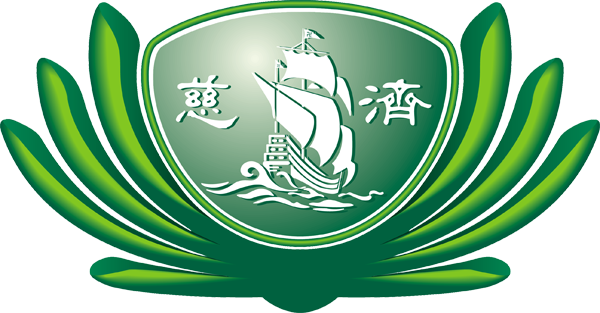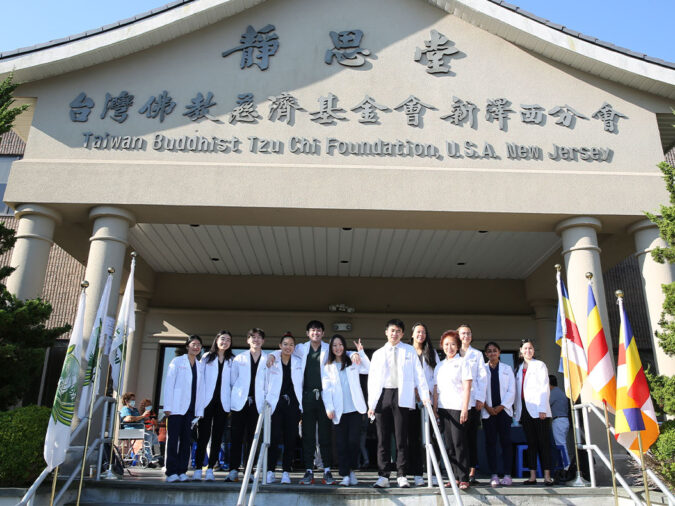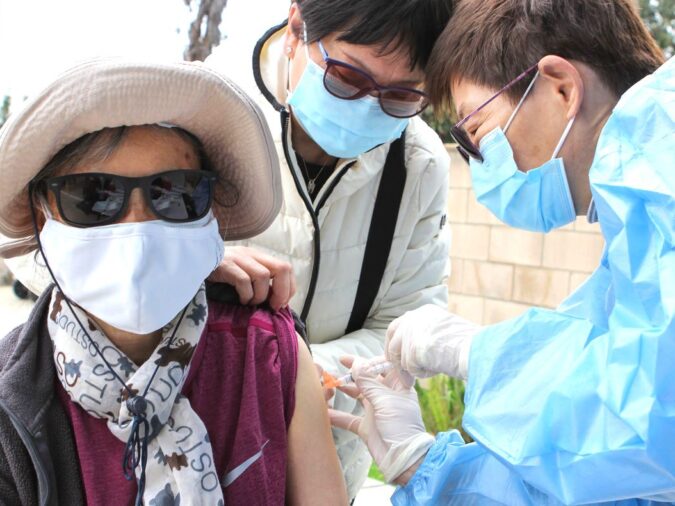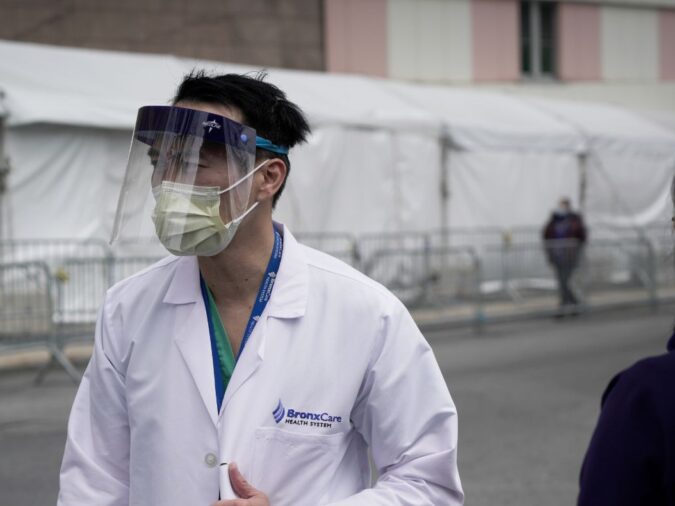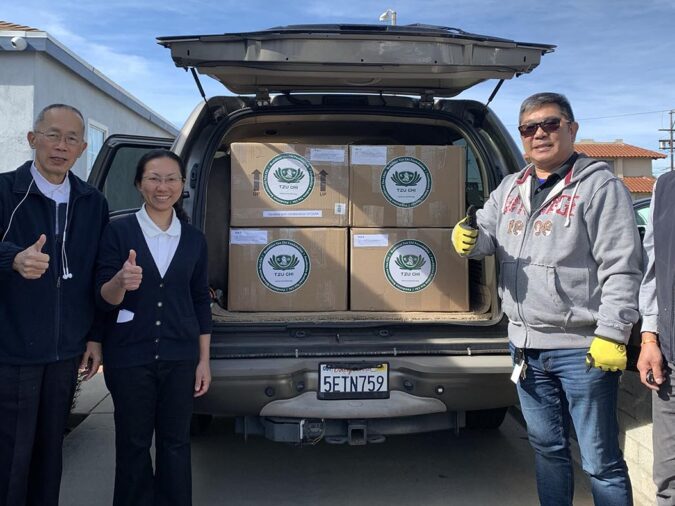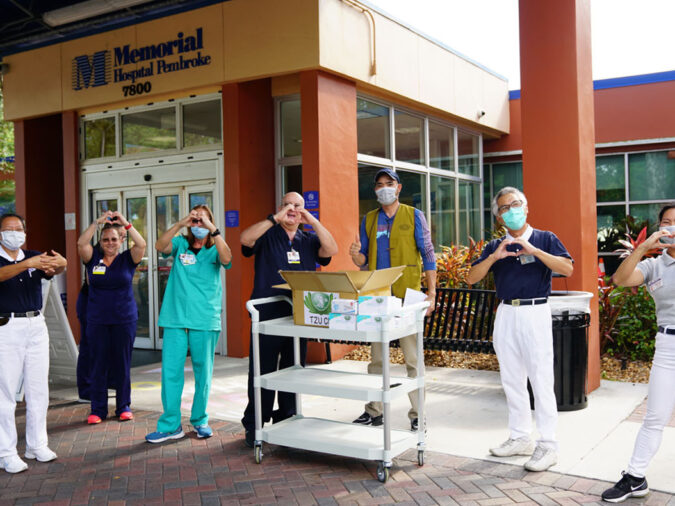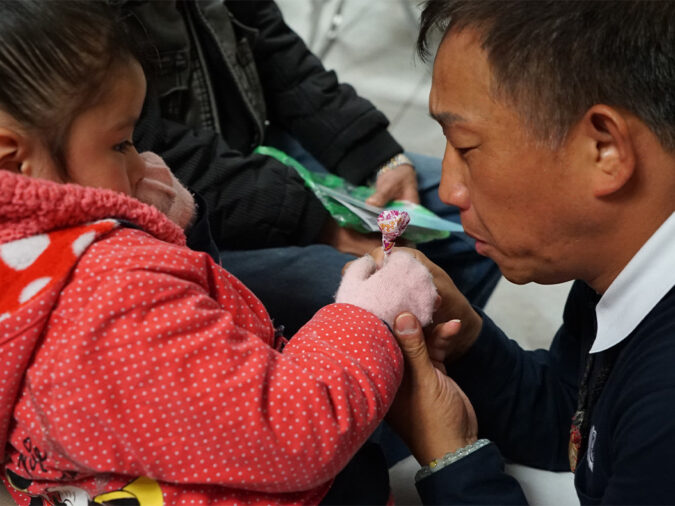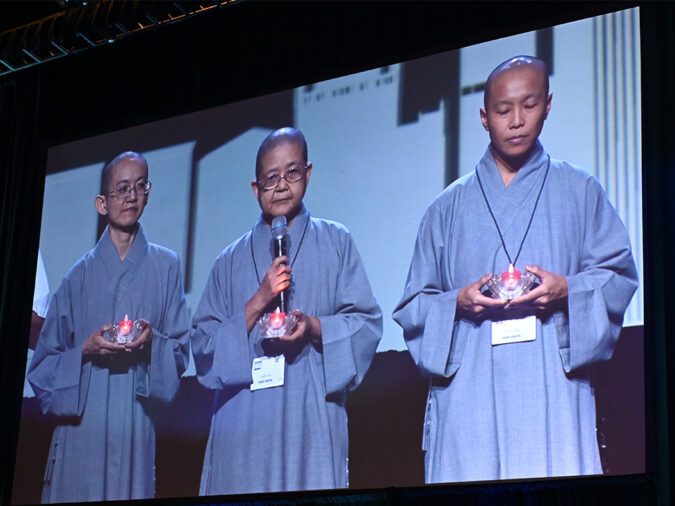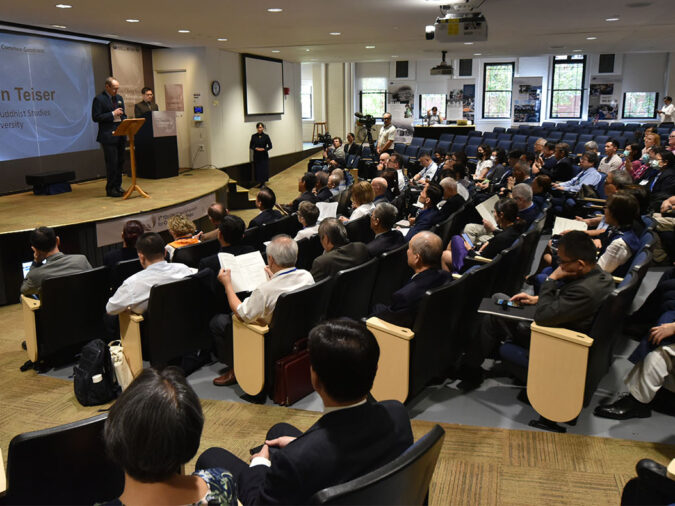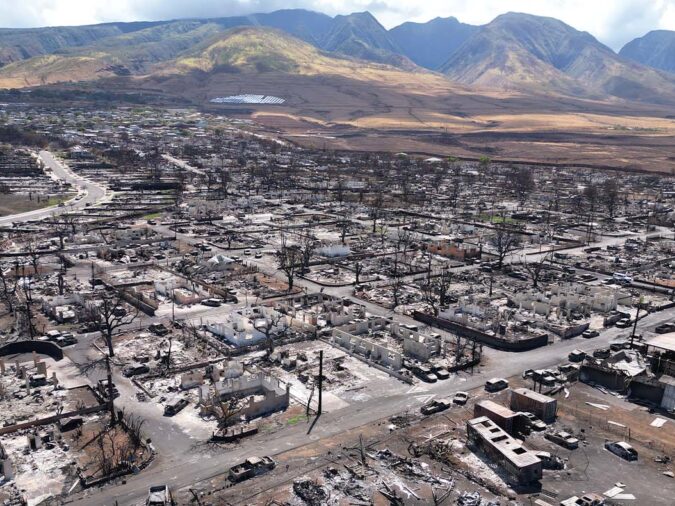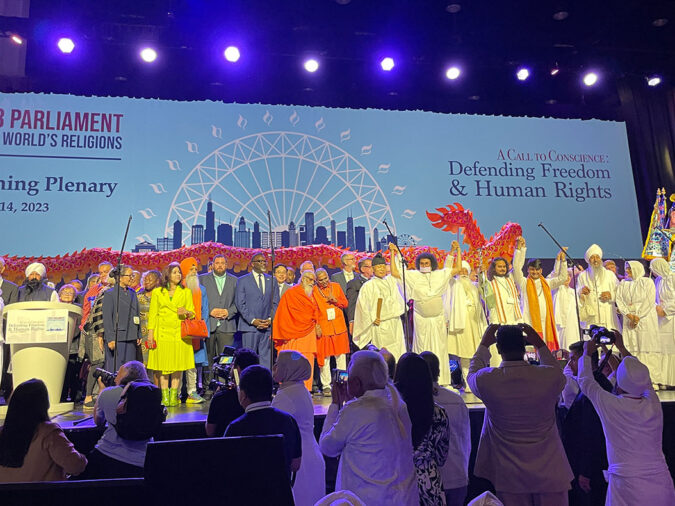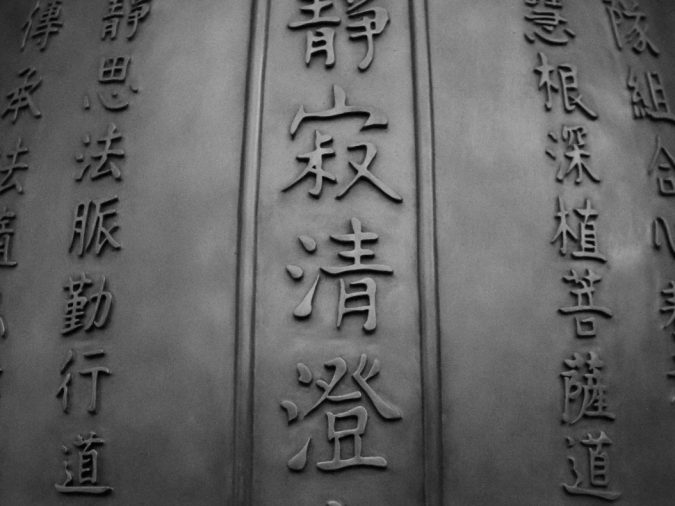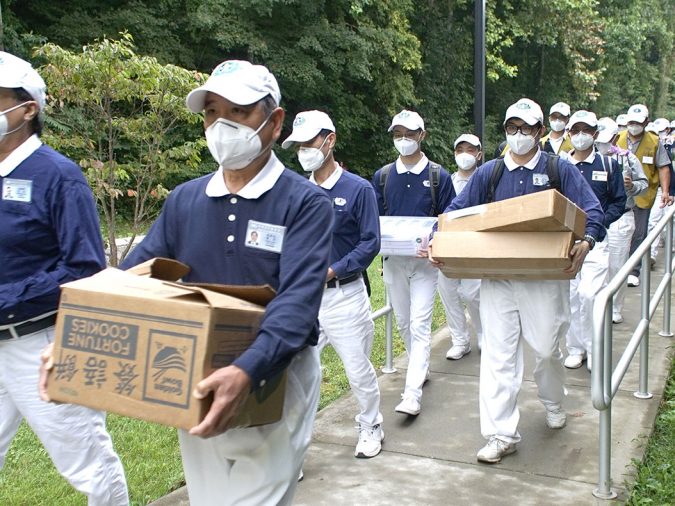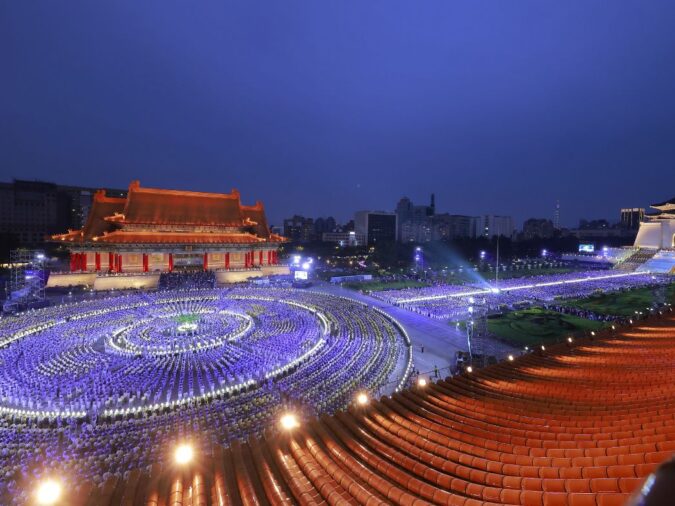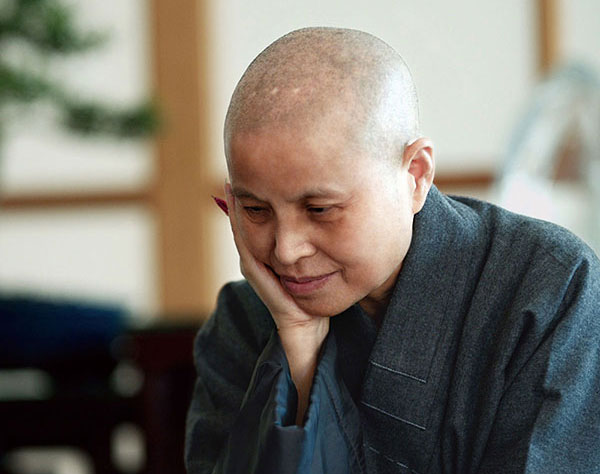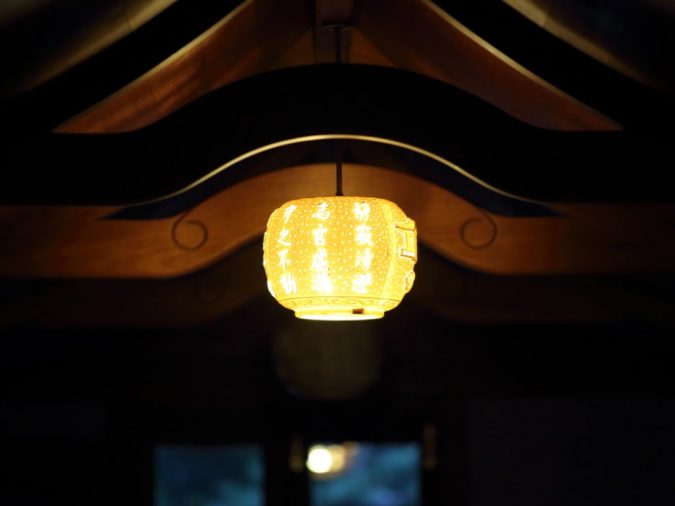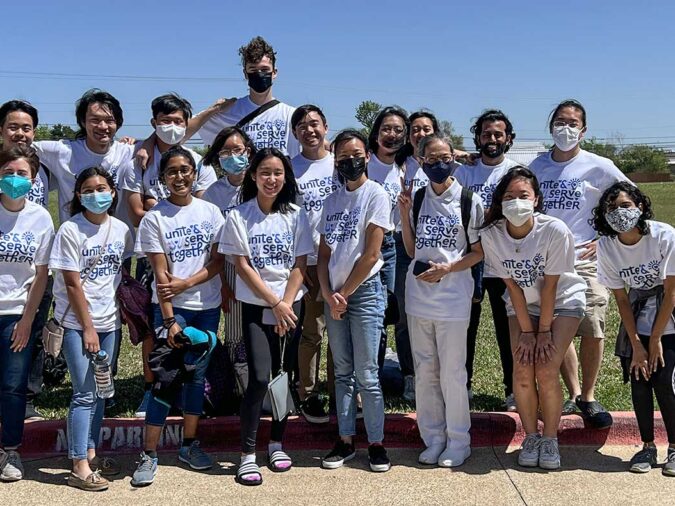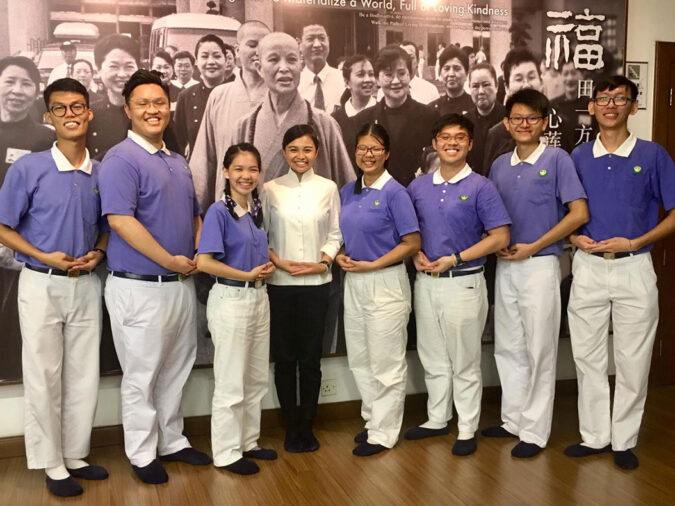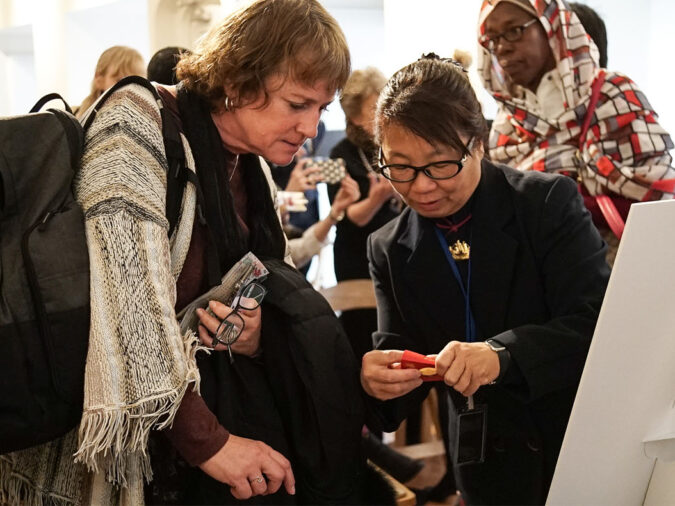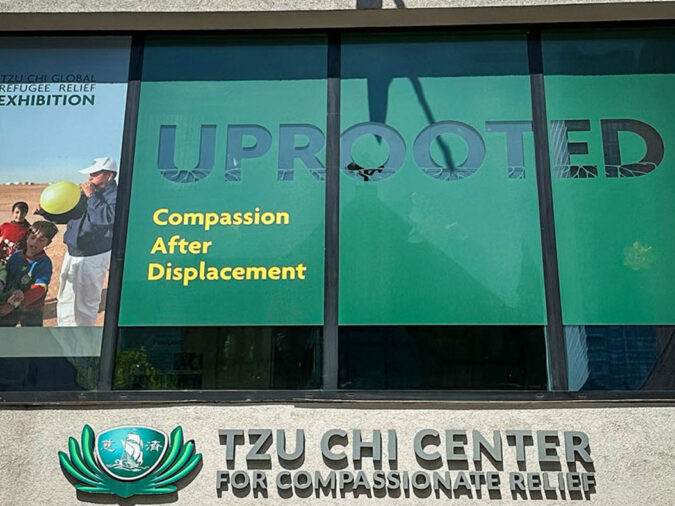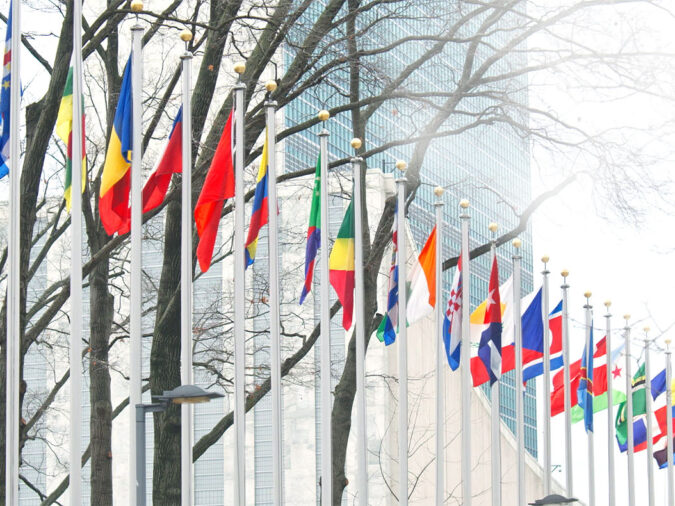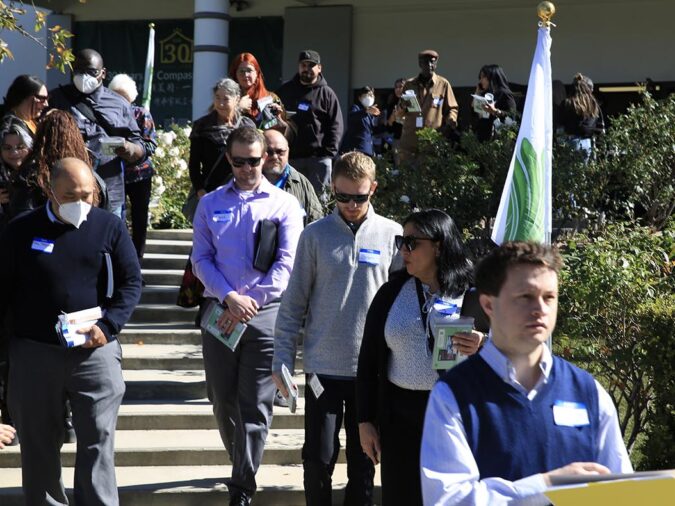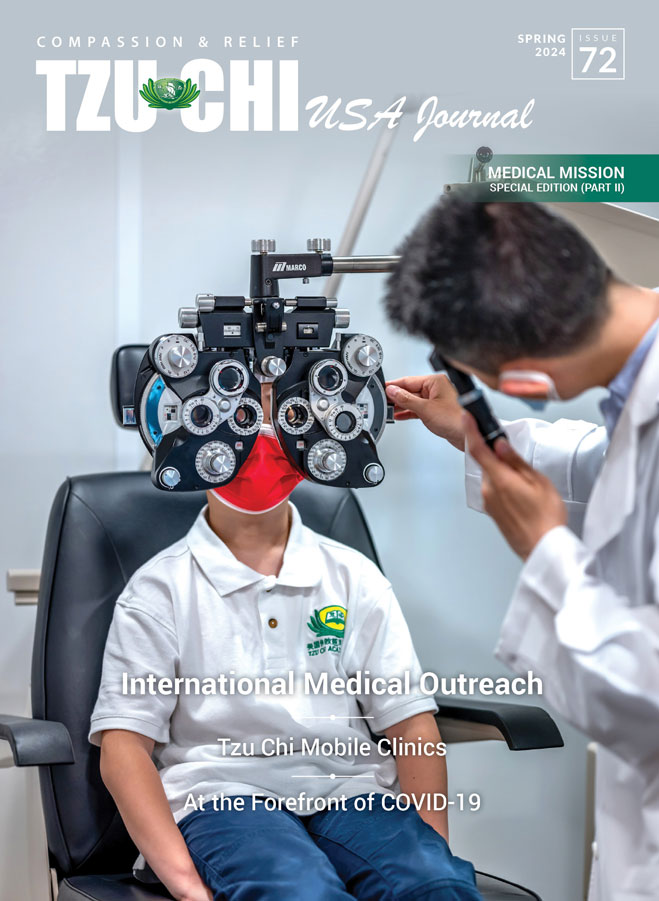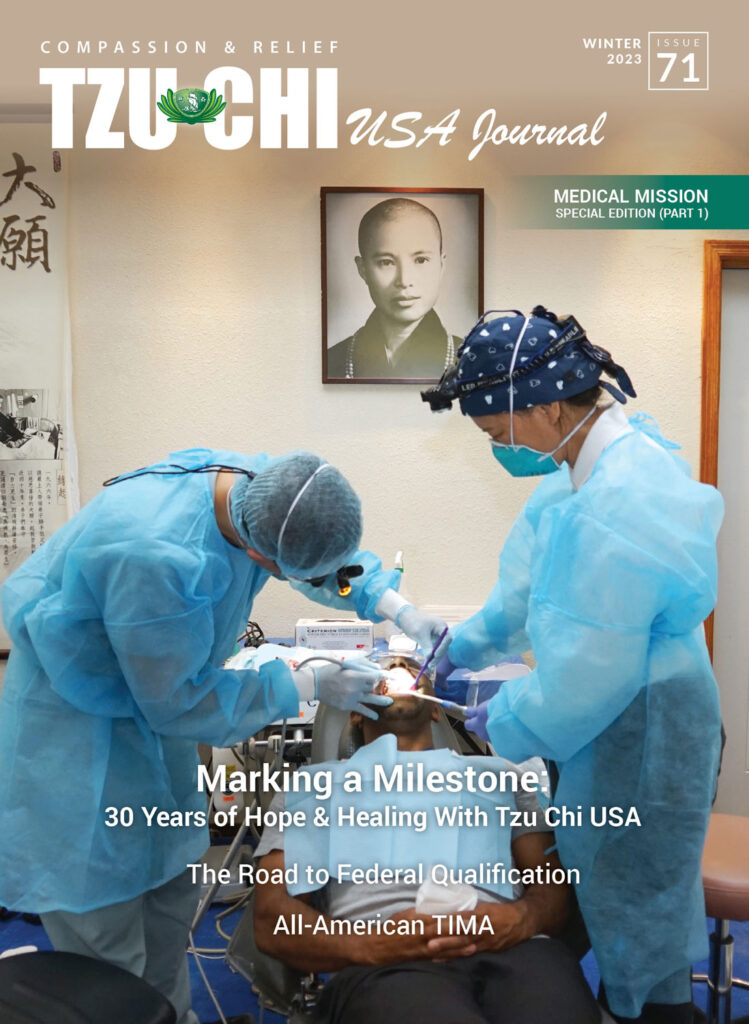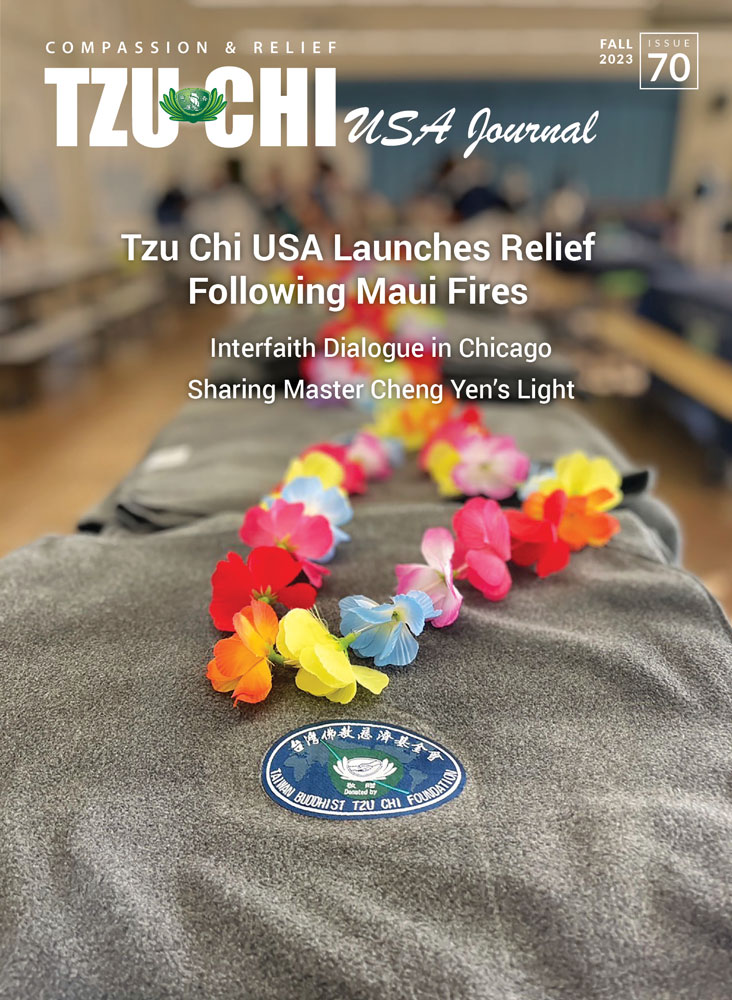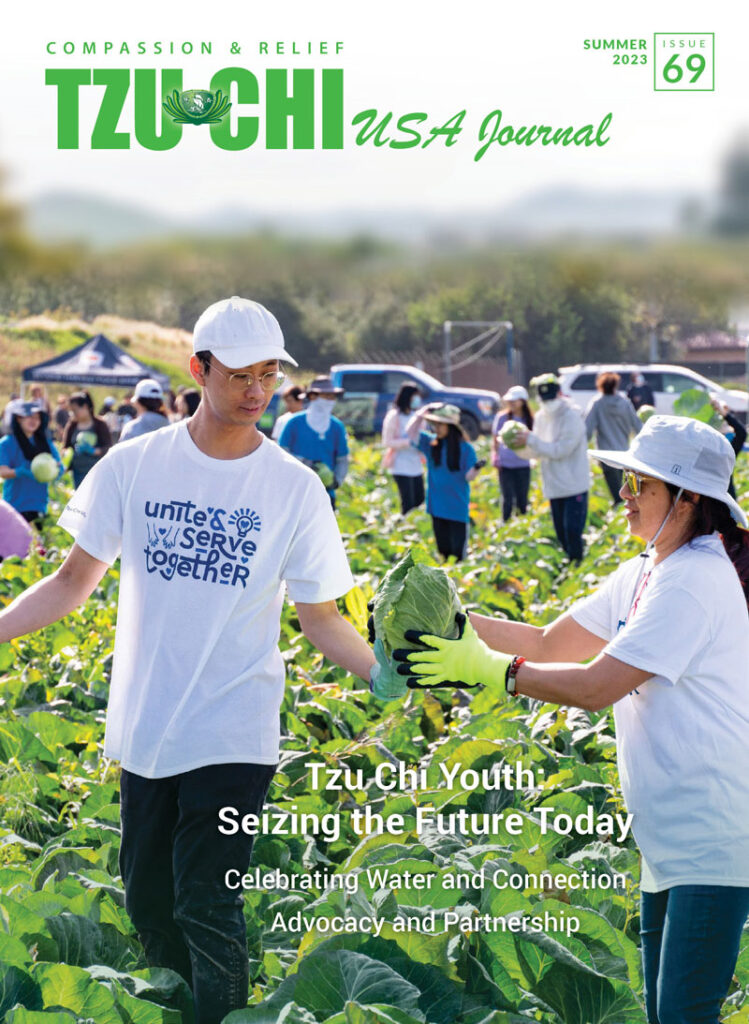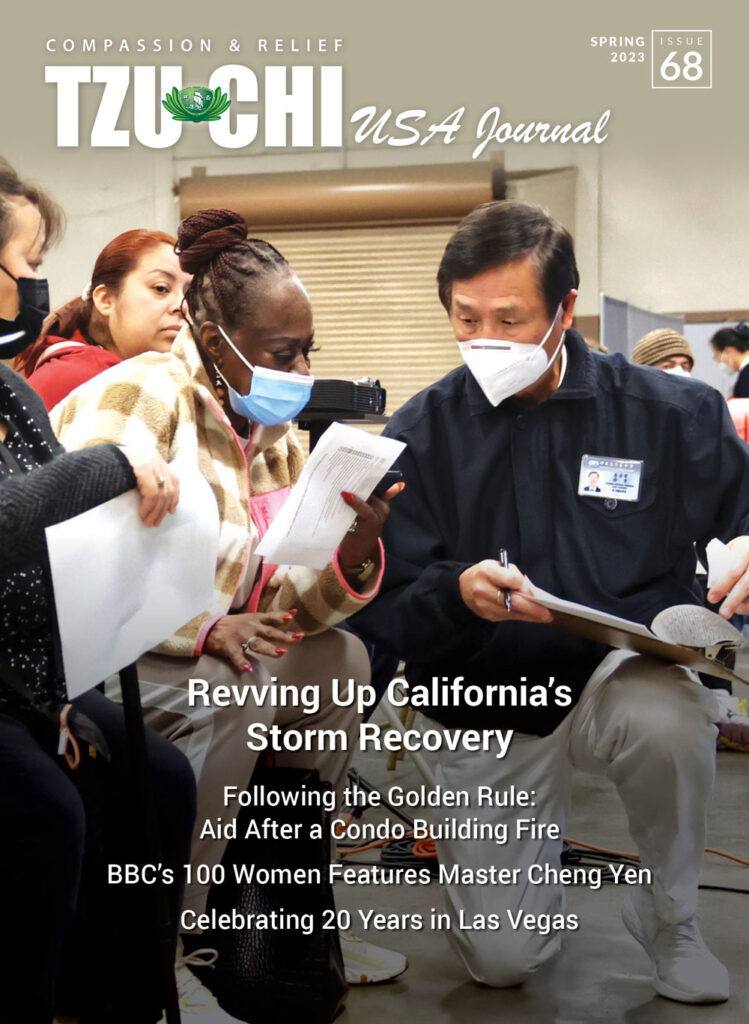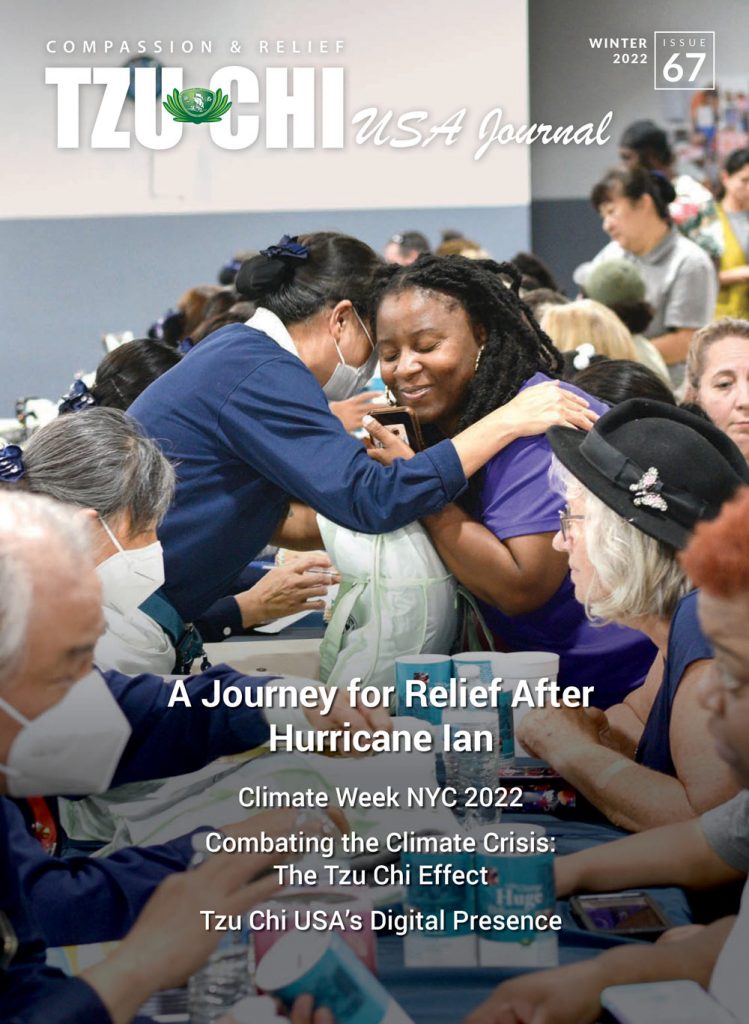CHAPTER 3
TIMA USA Washington D.C.
Written by Chen Chen, Akey Hung, Yingying Lee, and Wendy Tsai
Translated by H.B. Qin
Published #71 | Winter 2023 Issue
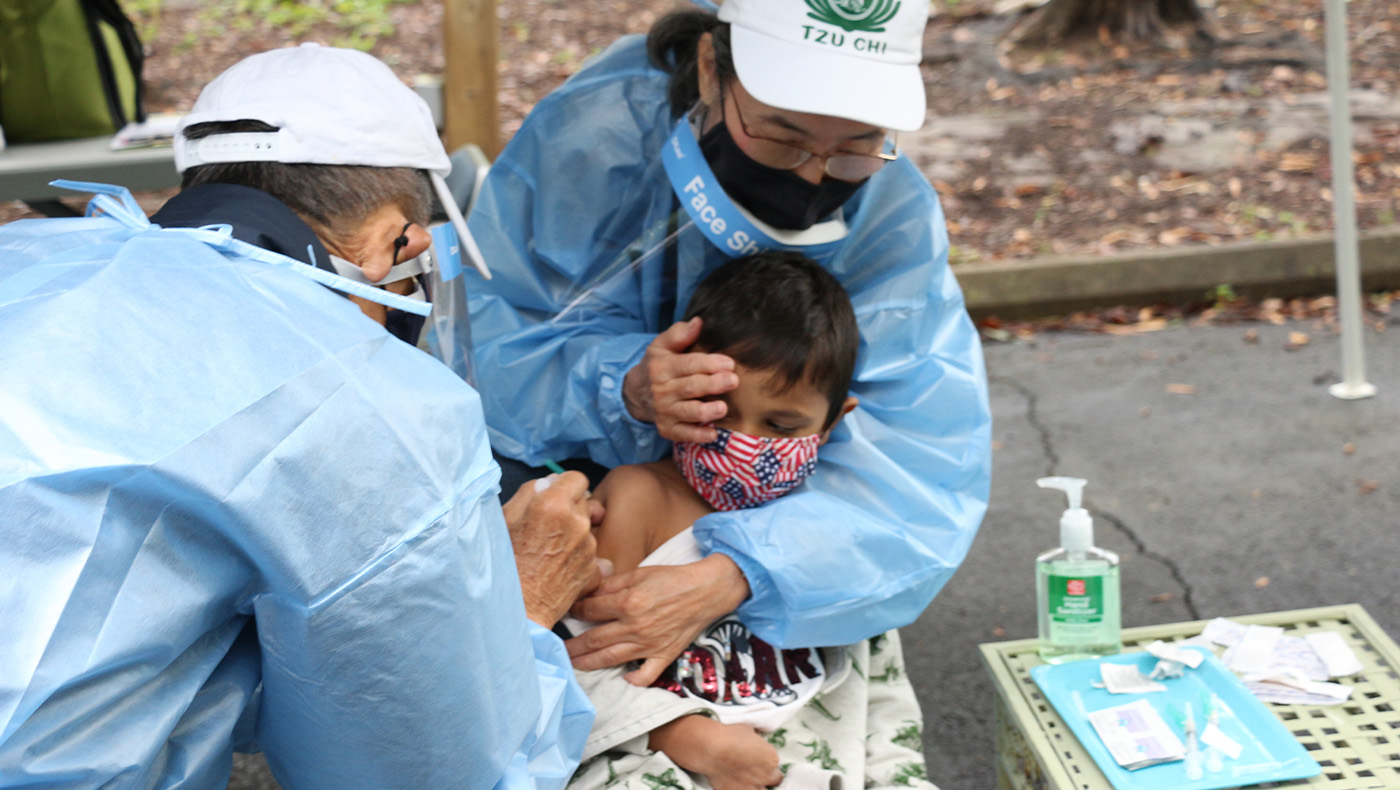
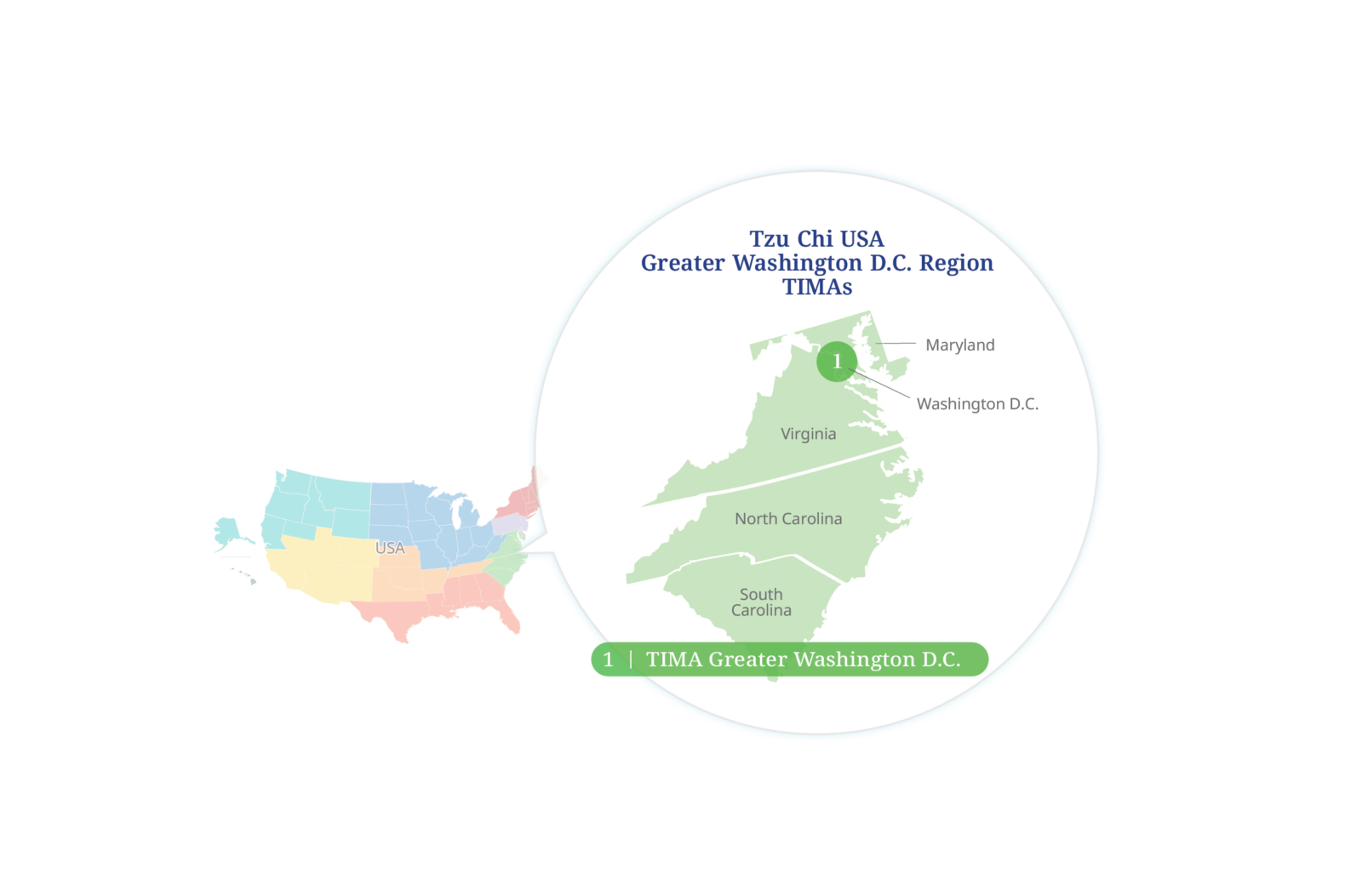
TIMA Greater Washington D.C. chapter’s Dr. Hiro Huang and Dr. Joan Huang work in unison to administer vaccines to the public. Photo/Kevin Chung
SHARE
A group of ethnically diverse but like-minded doctors, dietitians, nurses, and volunteers have always supported Tzu Chi USA Greater Washington D.C. Region’s medical mission. To more effectively implement community care and a sustainable cycle, the doctors reorganized the original medical team into the TIMA Greater Washington D.C. chapter. Sixteen years have passed since its establishment in 2007. Looking back, TIMA Greater Washington D.C.’s volunteers have opened up a new way of thinking and practicing medical care and oriented the medical mission to a more practical and broader way of making good connections.
Launching Hospice Care and Cancer Support Groups
A blood test for bone marrow donation event held in the fall of 1995 was the Greater Washington D.C. Region’s first activity promoting the medical mission. At that time, the Greater Washington D.C. Service Center (now the Greater Washington D.C. Region Office) had only been recently established and was understaffed. Thus, all the volunteers came to the Service Center for a lecture to review the entire blood test event procedure several times. One of the volunteers even had a nightmare because of nervousness the night before the event! After that, the event was held at least once a year for seven years, with more than ten events in that period, and the location expanded to events held in the community and schools.
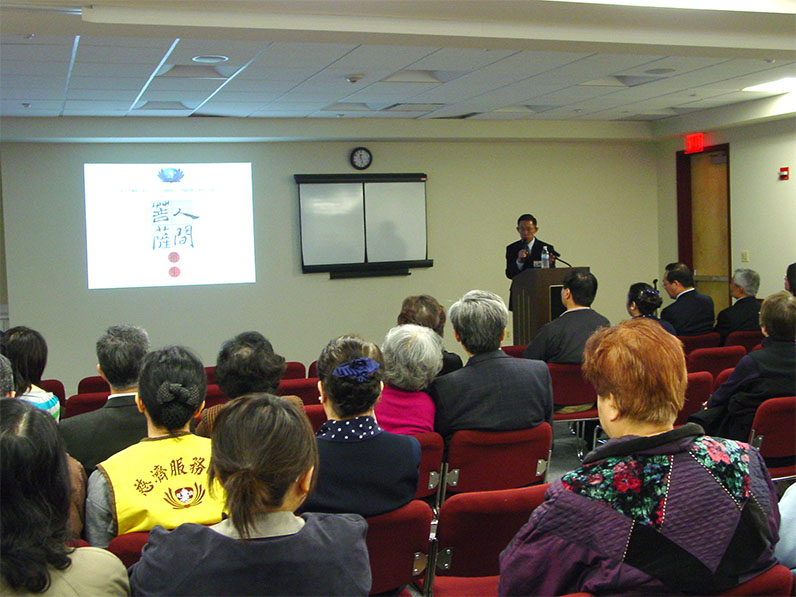
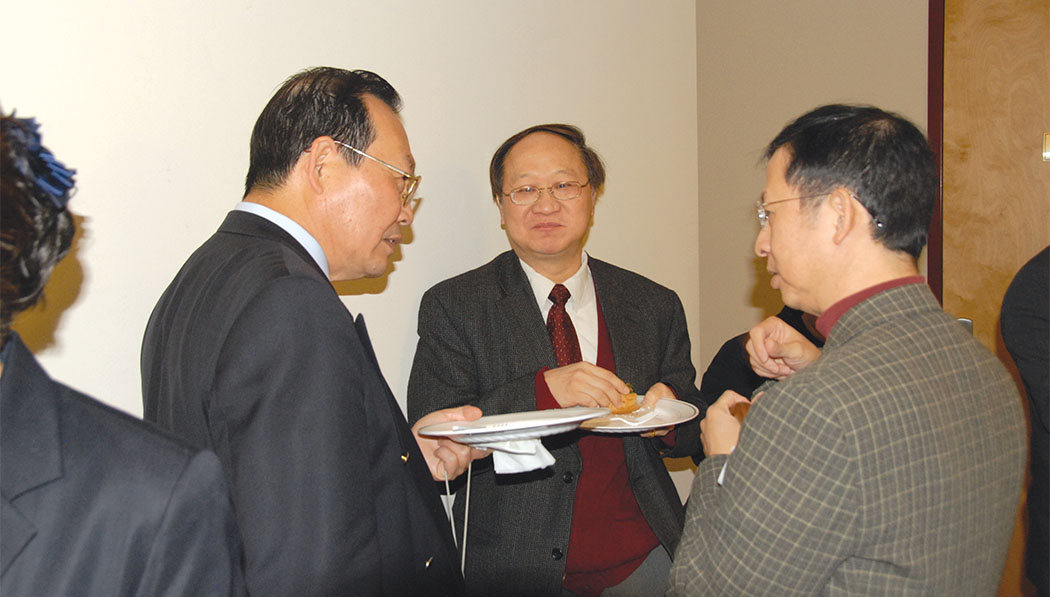
The blood tests for bone marrow donation events allowed volunteers to come into contact with many patients and understand their pain and needs and those of their families. On May 9, 1998, Tzu Chi volunteers established the Hospice Care Group and held a six-session workshop for volunteers. With the increasing interaction with patients and their families and a growing amount of relevant information, the volunteers expanded the workshop to 13 sessions in January 2004. Tzu Chi volunteers traveled to many hospitals to accompany patients and their families on this challenging and heartbreaking journey.
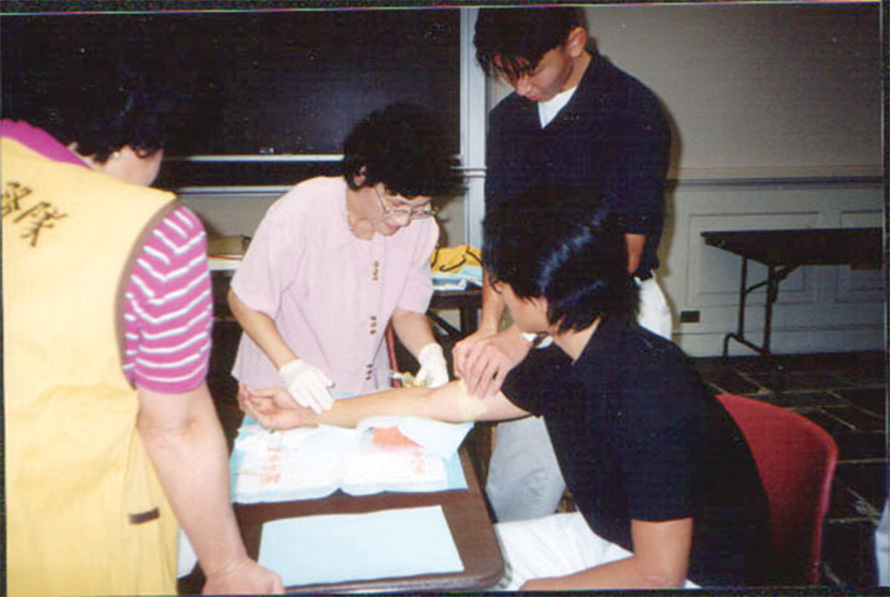
In 1998, Greater Washington D.C. Region volunteers took a big step forward in the medical mission. Learning that Chinese patients were unable to obtain or read professional information about their illnesses due to language barriers, and neither they nor their family members knew much about the medical conditions, the volunteers set up a Cancer Support Group on August 29, aiming to provide more care for cancer patients. The Group met at the Service Center monthly to help the patients and their families fight cancer together. Meanwhile, in response to their needs, Chinese experts were invited occasionally to give lectures on topics such as medical care, insurance, and social welfare to assist low-income or uninsured cancer patients in applying for medical subsidies and solving legal issues related to medical insurance.
Love and Patience Are Priceless
The Greater Washington D.C. Region’s care for the community’s low-income and uninsured residents predates free clinics. Since 1999, the Region’s volunteers have been providing free flu shots for the community at the turn of autumn and winter every year. In addition, they participated in an annual free medical consultation event hosted by caring Greater Washington D.C. area doctors in Montgomery County. The volunteers came out in full force and passionately supported the large-scale activity that included internal medicine, pediatrics, obstetrics and gynecology, allergy, orthopedics, gastroenterology, otorhinolaryngology, urology, and Traditional Chinese Medicine (TCM). Doctors of various specialties were on site to answer medical questions (with no diagnosis or treatment given), plus provide free blood pressure, glucose, cholesterol, anemia, and urine tests, measurements, or screenings.
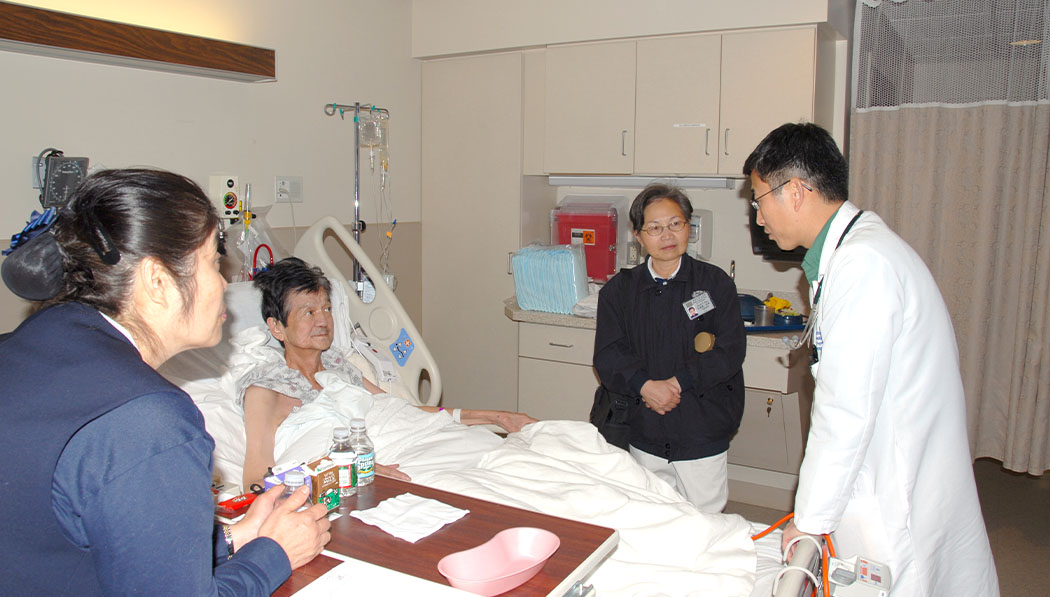
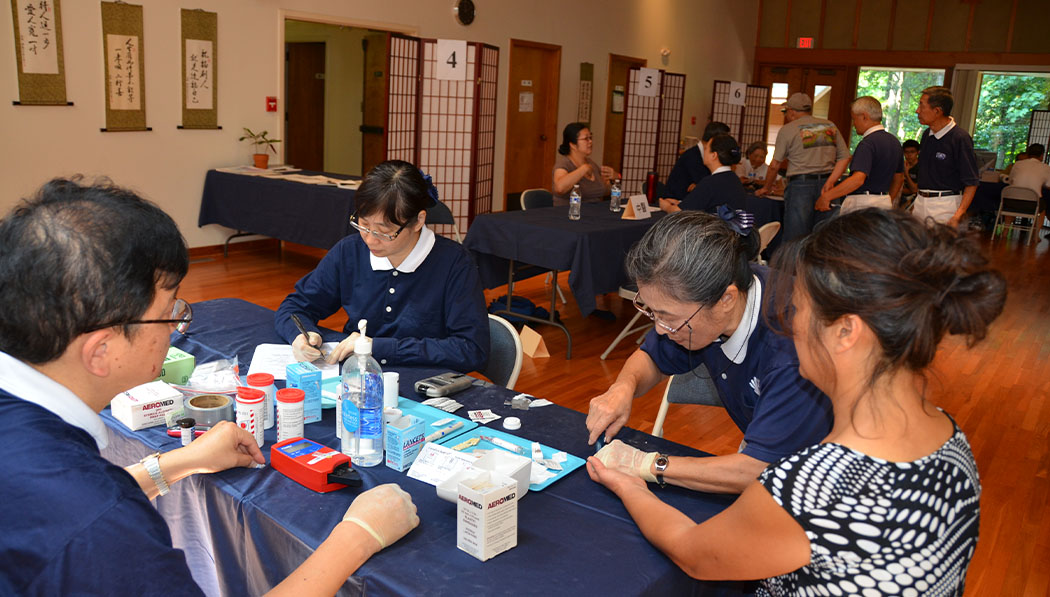
Greater Washington D.C. Region volunteers also offered a free medical consultation service each year at Julius West Middle School in Rockville, Maryland, outreach that continued through 2004. “I come here and see several doctors in one visit, and the doctors are more thorough and patient than the ones I usually see. It’s amazing!” said Mrs. Huang, who came to the clinic.
To encourage non-Chinese low-income families to participate in the event, the volunteers placed announcements in several English and Spanish newspapers, attracting several Hispanic residents. The consultations on August 10, 2002, which lasted three hours, served more than 150 people.
Hiro Huang from the Greater Washington D.C. Service Center’s medical team called on twelve professional doctors to form a consultation group covering internal medicine, pediatrics, gynecology, orthopedics, allergy, gastroenterology, urology, otolaryngology, and TCM. The consultation team provided free blood glucose testing, anemia screening, urine testing, and blood pressure measurement on-site. There were long queues for each service. “This was the result of the volunteers’ hard work in publicizing the program, and we hoped that in the future, we would be able to go to impoverished areas to provide free clinics,” Huang said.
To make it easier for Hispanics to communicate with the doctors, the Service Center found nurses fluent in Spanish to help with translations. Nursing staff member Irene remarked, “This kind of counseling was beneficial for patients who have questions but can’t afford to pay for a consultation.” She also suggested that the volunteers make signs in Spanish for the benefit of Hispanic patients.
On November 16, 2002, the Greater Washington D.C. Service Center held its first community free clinic event with Dr. Hsinchun Li, Dr. Yingchuan Hung, Dr. Meiyun Huang, and Dr. Hiro Huang, serving low-income residents. The free clinic was held twice a year after that, at Eastern Middle School and Silver Spring International Middle School. Eight doctors took turns hosting each event, providing free medical consultations and flu shots to 40 to 50 patients and 100 low-income or uninsured residents screened and recommended by the two schools’ social workers.
In March 2004, Greater Washington D.C. Region volunteers started the Medical English Conversation Class to help Chinese people who didn’t speak English overcome difficulties in communication over medical issues. The volunteers organized the class in small groups, only accepting 12 students to give each participant a chance to practice.
Prioritizing Daily Health Care and Prevention
Based on established personal connections and service locations, Greater Washington D.C. Region volunteers have collaborated with the government and various public welfare organizations. They also expanded their service area to Maryland and Virginia and disadvantaged communities so that the people who need medical services the most can have priority access to resources. At the same time, the services provided prioritized routine daily health care and the prevention of diseases.
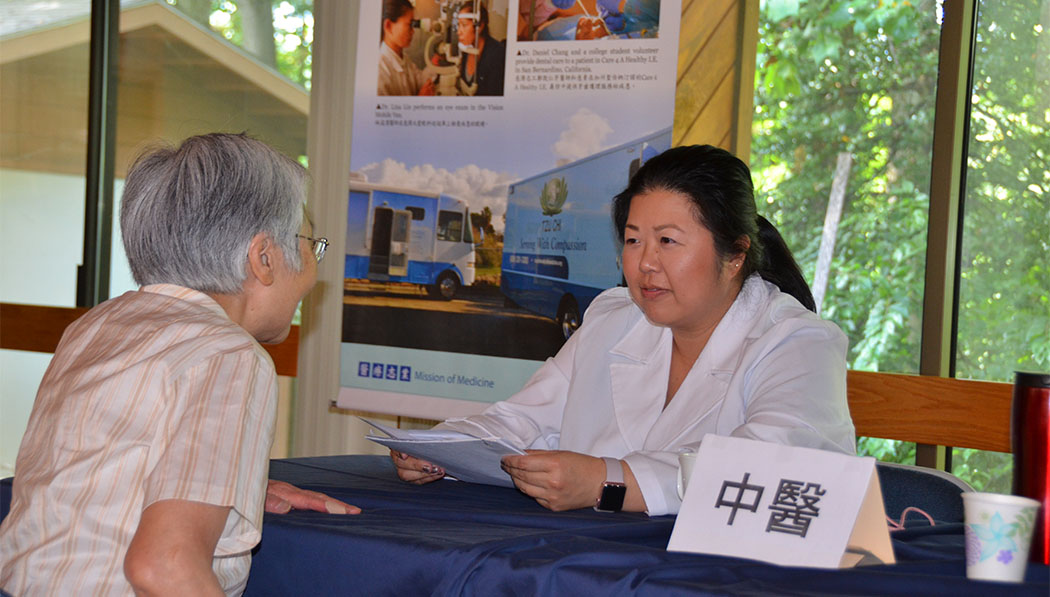
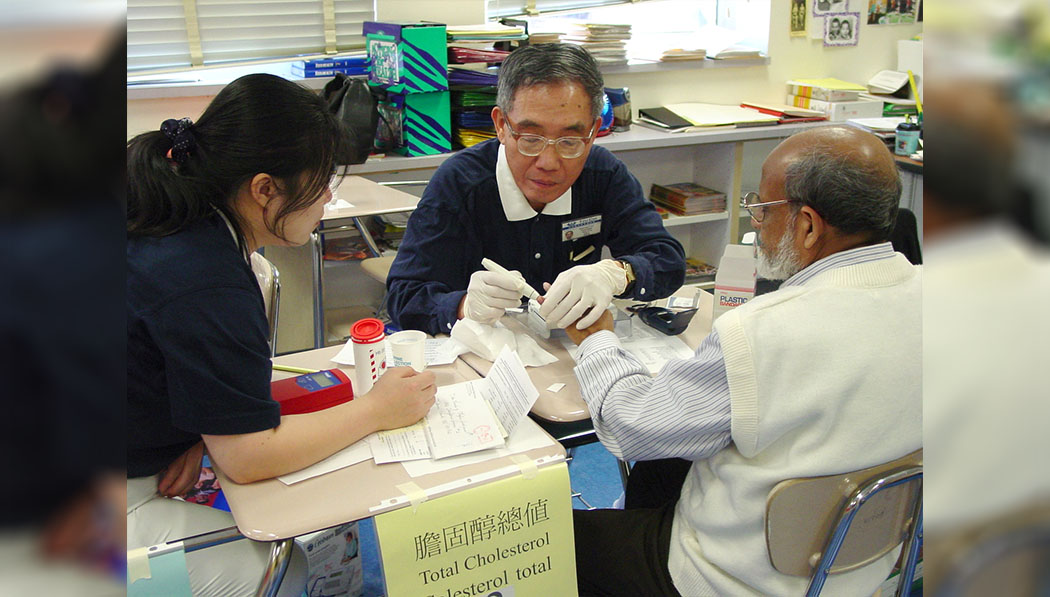
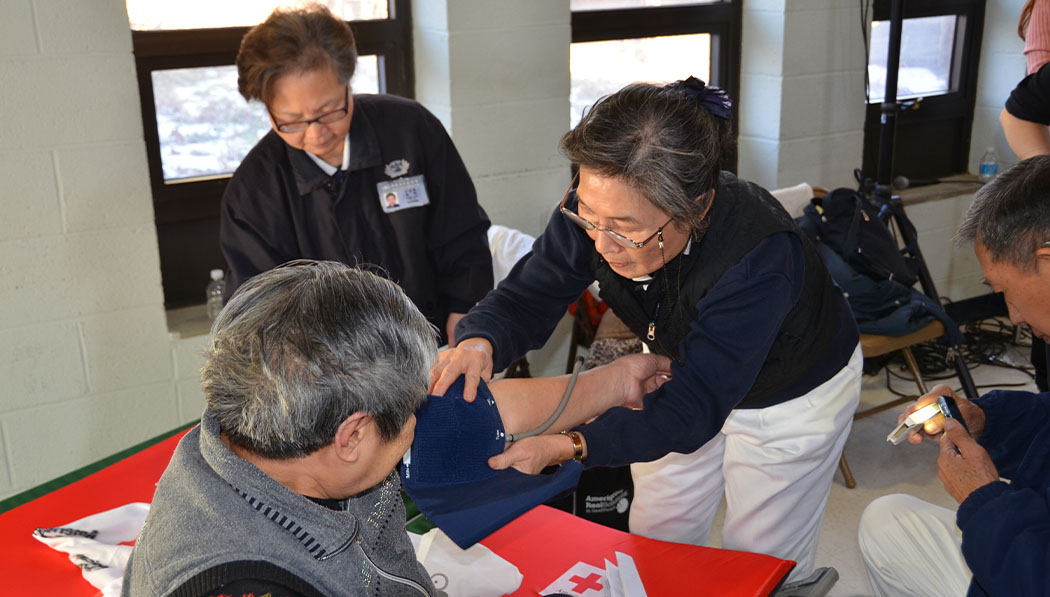
The Greater Washington D.C. Region has partnered with the American Red Cross, Young Men’s Christian Association (YMCA), Johns Hopkins University School of Medicine, state and county emergency agencies, and communities and schools. In addition to regular medical consultations and health checkups in the spring and fall, the Region’s volunteers also received referrals from social workers for individual case care and financial assistance.
Offering Highly Effective Fitness Classes
In 2008, Greater Washington D.C. Region volunteers launched a pilot program combining charity and medical care in Maryland’s second most impoverished district, a five-mile area centered around Broad Acres Elementary School (later renamed JoAnn Leleck Elementary School) in Silver Spring, Montgomery County. Tzu Chi Maryland volunteers had already been distributing food supplies to this impoverished community regularly every month since 2006. TIMA doctors then began providing healthcare consultation to Hispanic residents in the area, many of whom didn’t have medical insurance, lacked regular health checkups, and commonly suffered from obesity, high blood pressure, high blood glucose, high cholesterol, and other problems. This additional service was hugely beneficial to the Hispanic community, especially since most of the care recipients were women and mothers, who typically take care of shopping and cooking in their homes and thus are highly influential as their choices affect the health of their families.
The TIMA Greater Washington D.C. chapter partnered with JoAnn Leleck Elementary School to run a 13-week fitness and exercise program, taking participants through regular aerobic exercises every week. Dr. Hiro Huang and Dr. Joan Huang, among others, would also give practical lectures on nutrition weekly. They would bring newspapers and explain to participants that certain advertised foods on sale may increase weight and are not good for one’s health.
Twenty-three participants enrolled in the first session, all of whom were obese. TIMA volunteers checked the participants at the beginning and after the program, and the results were encouraging. Their weight dropped dramatically, and their Body Mass Index (BMI) improved significantly; thus, the program helped effectively control obesity, high blood pressure, and cholesterol levels. The people who participated in the healthcare program could not believe the changes in themselves and were delighted with their new health check results. They brought their experiences home, influencing family members and friends, and shared the results with their neighbors and coworkers, positively influencing the exercise habits of others.
We’re really seeing progress. Improvements in health take time; at least they’re no longer gaining weight and are starting to pay attention to their blood glucose, cholesterol, and blood pressure.
Hiro Huang
TIMA Physician
The first trial of this better-prevention-than-treatment community healthcare program satisfied the volunteers, who determined that the approach was feasible and worth continuing. The school’s social workers were also delighted when telling the story, while other schools have been inquiring with the volunteers, hoping that the Greater Washington D.C. Region could offer the same program to low-income families in their schools.
Forging Sustainable Love and Goodness
The Greater Washington D.C. Region volunteers were confident they could go one step further with the experience they had gained in JoAnn Leleck Elementary School in Silver Spring, Maryland. After an evaluation by the medical mission team, the volunteers decided to take advantage of the trend. They subsequently brought the number of communities in which Tzu Chi provides comprehensive care to four by including the Southgate Community Center in Reston, Virginia, the school district of Rosa L. Parks Elementary School in Hyattsville, Maryland, and Summit Hall Elementary School in Gaithersburg, Maryland.
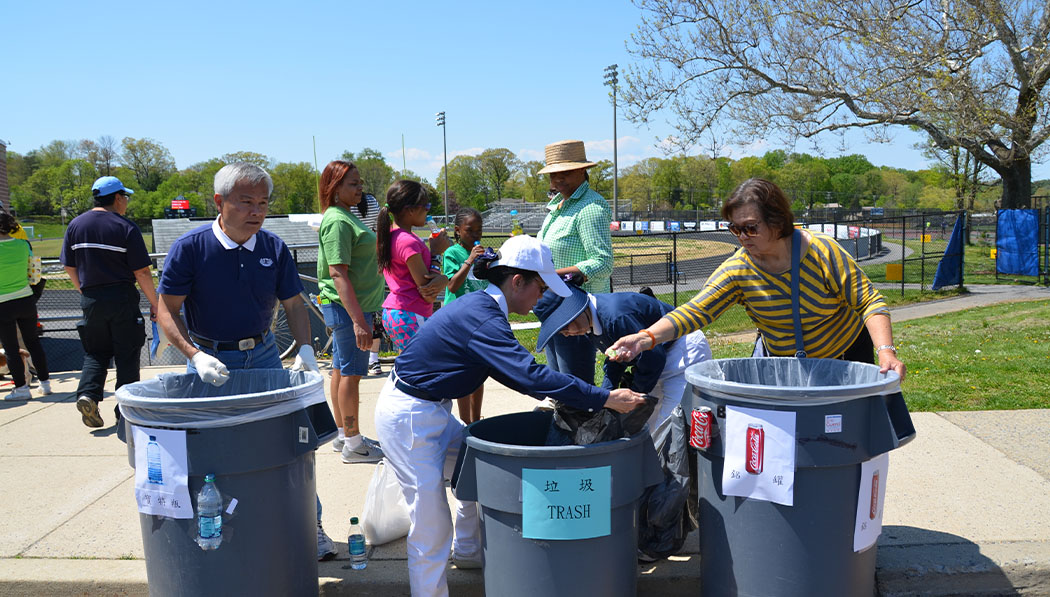
The Region’s volunteers then shifted from running a regular monthly community healthcare program to providing charity and medical care to complex case families without medical insurance and in dire need of medical and spiritual help. The parents in these families, while not concerned about their own health, were worried about that of their children and filled with sadness and despair, not knowing what to do.
Therefore, when there was a complex case, Tzu Chi and TIMA volunteers would work together to provide long-term support, giving financial, spiritual, and professional care and accompanying those involved as they endured the pain of illness or the low point when their loved ones passed away. From the past to the present, many such long-term care recipients have become benefactors who have concretely implemented Tzu Chi’s philosophy of advancing the cycle of love and goodness in society.
TIMA Greater Washington D.C. needs more young doctors to join its volunteer team. Dr. Hiro Huang and Dr. Joan Huang, who are still serving in their positions, said that the doctors who founded this TIMA chapter in the past have mostly retired or are getting older. They need younger generations to join in so the Greater Washington D.C. chapter can grow strong anew.
Following the Dharma Path
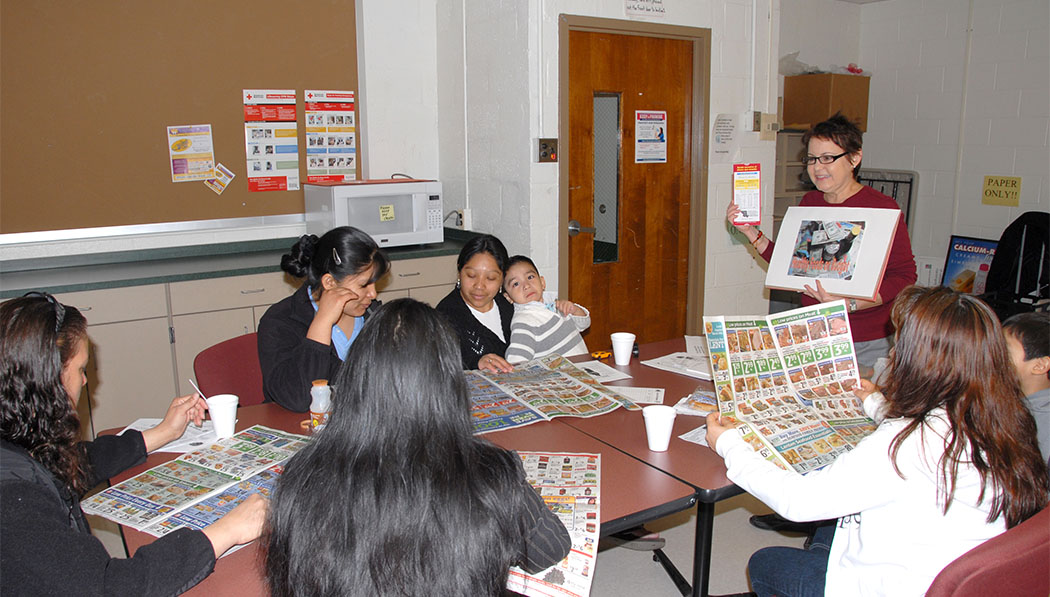
“Learning by doing, realizing by learning,” this comprehensive Dharma approach to community care inevitably led Tzu Chi USA Washington D.C. Region volunteers to encounter unique or complex cases. One of these cases, which took place in Northern Virginia, gave them a powerful opportunity to practice this maxim.
The case of care recipient Yu began with a simple hernia issue, and the volunteers provided help with transportation to and from where he was receiving medical treatment. However, subsequently, this care recipient accidentally learned he had end-stage lung cancer. In shock and despair, the patient once lost the will to live. With the flick of a finger, an ordinary case became complex and challenging.
Greater Washington D.C. Region volunteers took up this challenge and guided the care recipient patiently and earnestly. He finally came to a clear mind and turned to Buddhism, constantly reciting the Buddha’s name while conscious. It was a difficult journey, and the volunteers were heartbroken when keeping him company while unable to relieve his physical pain. And yet, the care recipient showed and taught the volunteers that “if taking things easy is a kind of ability, letting go is wisdom.” At the time of his death, he entrusted all his affairs to the volunteers and was at ease, laughing and smiling. The volunteers donated all of his properties to Tzu Chi USA, leaving his love for the world. Through this case, they realized that the Dharma path of Tzu Chi volunteers contains ample opportunities to cultivate wisdom.
Master Cheng Yen has said, “The universe is all-encompassing, and we can learn anything. Anyone who wants to learn can do so, regardless of age or grade. We need to ‘learn by doing and realize by learning.’” Tzu Chi Greater Washington D.C. Region volunteers have embraced this teaching, as is evident in their attitude and activities.
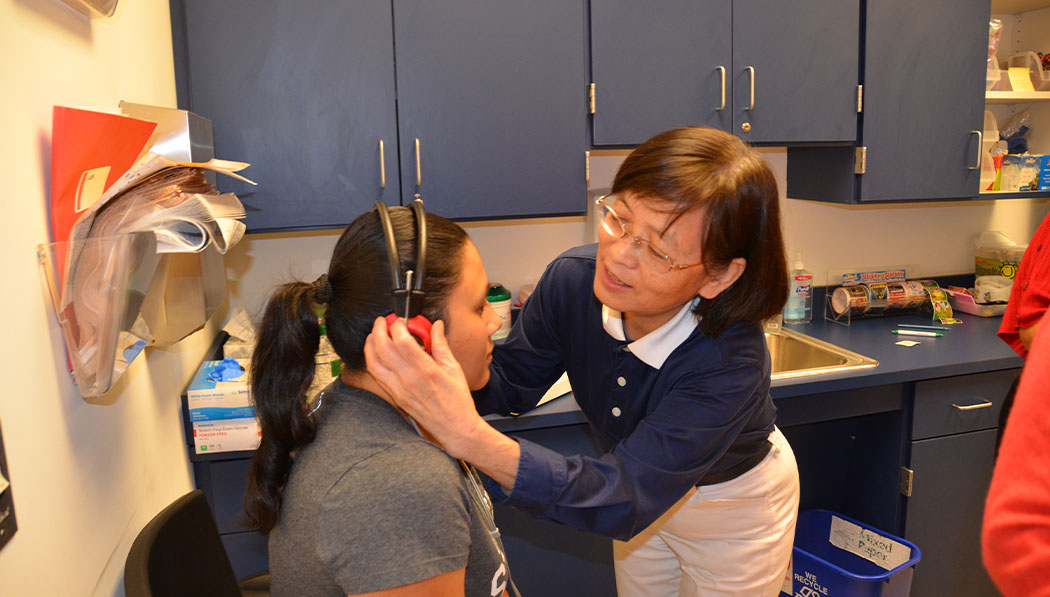
TIMA Greater Washington D.C. chapter volunteers also rely on Tzu Chi Buddhist Dharma as, in addition to treating the sick with their medical expertise, they strive to heal the hearts of those suffering due to health issues. Their comprehensive medical care treats the illness and heals the heart. In this way, both those receiving and providing care are on a mission to relieve suffering and find fulfillment in life.
